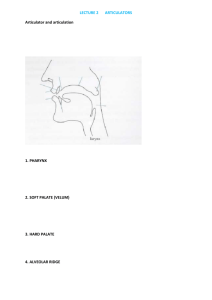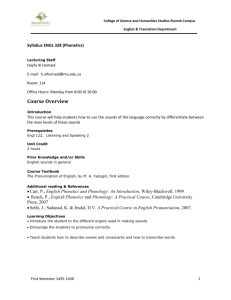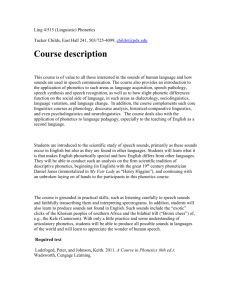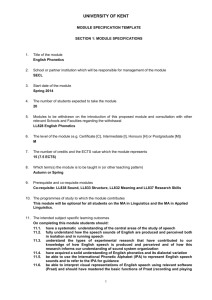Teaching Pronunciation
advertisement
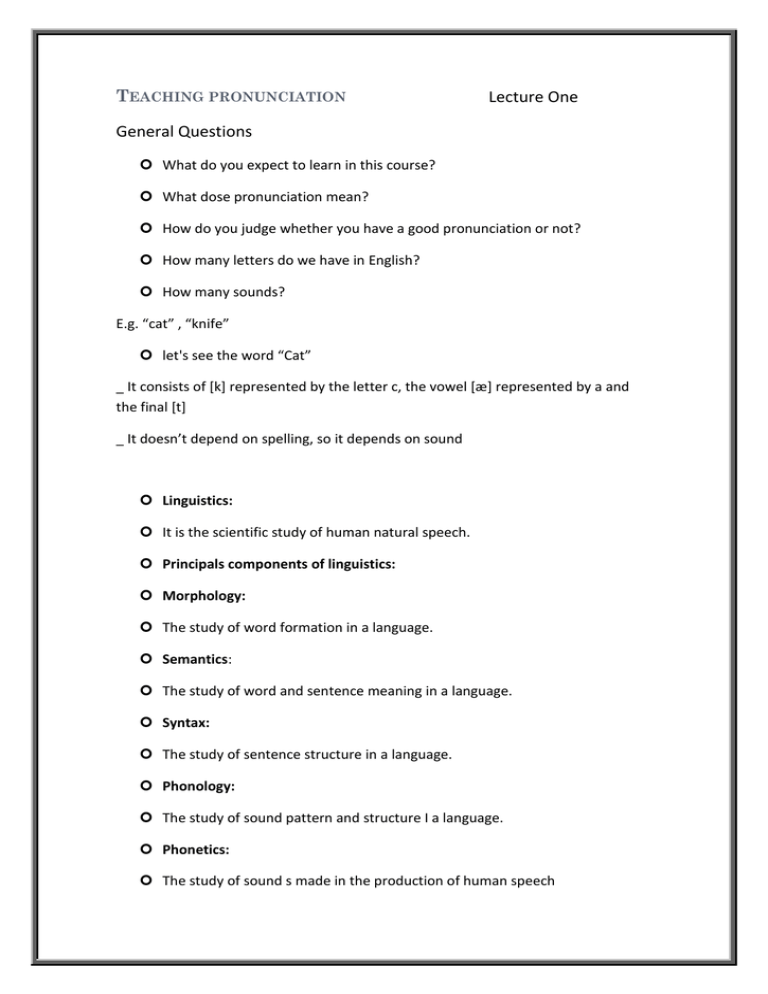
TEACHING PRONUNCIATION Lecture One General Questions What do you expect to learn in this course? What dose pronunciation mean? How do you judge whether you have a good pronunciation or not? How many letters do we have in English? How many sounds? E.g. “cat” , “knife” let's see the word “Cat” _ It consists of [k] represented by the letter c, the vowel [æ] represented by a and the final [t] _ It doesn’t depend on spelling, so it depends on sound Linguistics: It is the scientific study of human natural speech. Principals components of linguistics: Morphology: The study of word formation in a language. Semantics: The study of word and sentence meaning in a language. Syntax: The study of sentence structure in a language. Phonology: The study of sound pattern and structure I a language. Phonetics: The study of sound s made in the production of human speech English Phonetics Phonetics is the study of sound made in the production of human speech. It deals with the production of the sounds, the physical properties of the sounds Phonetics: The Sounds of Language _ The systematic study of human speech sounds _How they are produced _How they are characterized Phonetics and Phonology Phonetics and phonology are two branches of linguistics that deal primarily with the structure of human language sounds. Phonetics focuses on the physical manifestations of speech sounds and on theories of speech production and perception. Phonology is concerned with the systems of rules (or constraints) that determine how the sounds of a language combine and influence one another. As phonetics and phonology both deal with sounds, and as English spelling and English pronunciation are two very different things, it is important that you keep in mind that we are not interested in letters here, but in sounds. In other words, phonetics is about sounds of language, phonology about sound systems of language The importance of phonetics Phonetics and phonology are worth studying for several reasons, that the study of the phonetics of a foreign language gives us a much better ability both to hear and to correct mistakes that we make, and also to teach pronunciation of the foreign language (in this case English) to others. Branches of Phonetics Principal branches of phonetics: 1.Articulatory phonetics: Focuses on the human vocal apparatus and describes sounds in terms of their articulation in the vocal tract. 2.Acoustic Phonetics: Uses the tools of physics to study the nature of sound waves produced in human language. 3. Auditory phonetics: Studies the perception of sound by the brain through the human ear. Orthography and Sounds Alphabetic spelling represents the pronunciation of words. However, the sounds of the words in a language are unsystematically represented by orthography (Spelling). Even though alphabetic spelling is meant to represent the pronunciation of words, it is not always reliable in figuring out how a word is pronounced for the following reasons: Different letters may represent the same sound: e.g. to - too - two A single letter may represent different sounds: e.g. dame dad father call village many. A combination of letters may represent a single sound: e.g. shoot - character - physics - rough Some letters have no sound at all in certain words: _ knife - resign – lamb – talk To sum up, The English language is not phonetic. Words are not spelled as they are pronounced. There is no one to one correspondence between the letters and the sounds.
